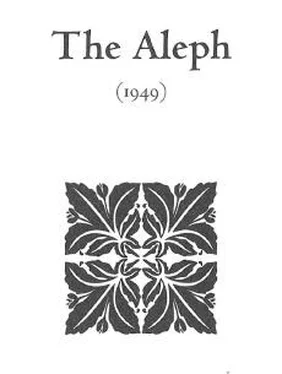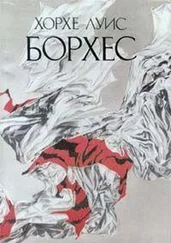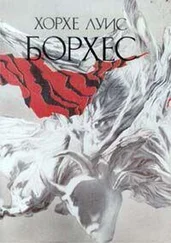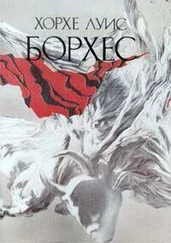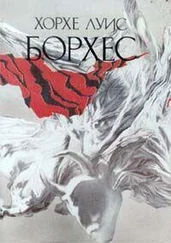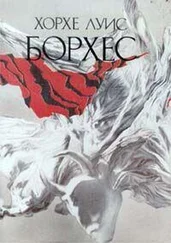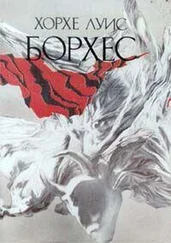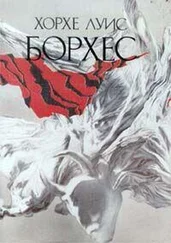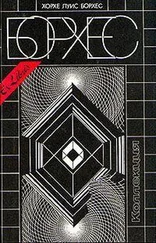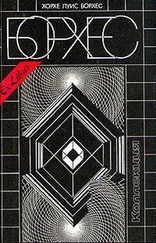Хорхе Борхес - Collected Fictions
Здесь есть возможность читать онлайн «Хорхе Борхес - Collected Fictions» весь текст электронной книги совершенно бесплатно (целиком полную версию без сокращений). В некоторых случаях можно слушать аудио, скачать через торрент в формате fb2 и присутствует краткое содержание. Год выпуска: 1999, ISBN: 1999, Издательство: Penguin (UK), Жанр: Старинная литература, на английском языке. Описание произведения, (предисловие) а так же отзывы посетителей доступны на портале библиотеки ЛибКат.
- Название:Collected Fictions
- Автор:
- Издательство:Penguin (UK)
- Жанр:
- Год:1999
- ISBN:9780140286809
- Рейтинг книги:5 / 5. Голосов: 1
-
Избранное:Добавить в избранное
- Отзывы:
-
Ваша оценка:
- 100
- 1
- 2
- 3
- 4
- 5
Collected Fictions: краткое содержание, описание и аннотация
Предлагаем к чтению аннотацию, описание, краткое содержание или предисловие (зависит от того, что написал сам автор книги «Collected Fictions»). Если вы не нашли необходимую информацию о книге — напишите в комментариях, мы постараемся отыскать её.
Collected Fictions — читать онлайн бесплатно полную книгу (весь текст) целиком
Ниже представлен текст книги, разбитый по страницам. Система сохранения места последней прочитанной страницы, позволяет с удобством читать онлайн бесплатно книгу «Collected Fictions», без необходимости каждый раз заново искать на чём Вы остановились. Поставьте закладку, и сможете в любой момент перейти на страницу, на которой закончили чтение.
Интервал:
Закладка:
On January 16, 1867, Roger Charles Tichborne called upon his mother. His respectful servant, Ebenezer Bogle, preceded him. It was a winter day of bright sunshine; Lady Tichborne's tired eyes were veiled with tears. The black man threw the windows open. The light served as a mask; the mother recognized the prodigal and opened her arms to him. Now that she had him in the flesh, she might do without his diary and the letters he had written her from Brazil—the treasured reflections of the son which had fed her loneliness through those fourteen melancholy years. She returned them to him proudly; not one was missing.
Bogle smiled discreetly; now he could research the gentle ghost of Roger Charles.
AD MAJOREM DEI GLORIAM
That joyous recognition, which seems to obey the tradition of classical tragedy, should be the crown of this story, leaving happiness assured (or at least more than possible) for the three persons of the tale—the true mother, the apocryphal and obliging son, and the conspirator repaid for the providential apotheosis of his industry. But Fate (for such is the name that we give the infinite and unceasing operation of thousands of intertwined causes) would not have it. Lady Tichborne died in 1870, and the family brought charges against Arthur Orton for impersonation and usurpation of their dead kinsman's estate. As they themselves were afflicted with neither tears nor loneliness (though the same cannot be said of greed), they had never believed in the obese and almost illiterate lost son who had so inopportunely reappeared from Australia.
Orton's claim was supported by the innumerable creditors who had decided that he was Tichborne; they wanted their bills paid. He also drew upon the friendship of the old family solicitor, Edward Hopkins, and that of an antiquary named Francis J. Baigent. But this, though much, was not enough. Bogle believed that if they were to win this round, a groundswell of public support was wanted. He called for his top hat and his black umbrella and he went out for a walk through the decorous streets of London, in search of inspiration. It was just evening; Bogle wandered about until a honey-colored moon was mirrored in the rectangular waters of the public fountains. And then he was visited by his god. Bogle whistled for a cab and had himself driven to the flat of the antiquary Baigent. Baigent sent a long letter to the Times, denouncing this "Tichborne claimant" as a brazen hoax. The letter was signed by Father Goudron, of the Society of Jesus. Other, equally papist, denunciations followed. The effect was immediate: the right sort of person could not fail to see that Sir Roger Charles Tichborne was the target of a despicable Jesuit plot.
THE COACH
The trial lasted one hundred ninety days. Some hundred witnesses swore that the accused was Roger Charles Tichborne—among them, four comrades-at-arms from the 6th Dragoons. Orton's supporters steadfastly maintained that he was no impostor—had he been, they pointed out, he would surely have attempted to copy the juvenile portraits of his model. And besides, Lady Tichborne had recognized and accepted him; clearly, in such matters, a mother does not err. All was going well, then—more or less—until an old sweetheart of Orton's was called to testify. Not a muscle of Bogle's face twitched at that perfidious maneuver by the "family"; he called for his black umbrella and his top hat and he went out into the decorous streets of London to seek a third inspiration. We shall never know whether he found it. Shortly before he came to Primrose Hill, he was struck by that terrible vehicle that had been pursuing him through all these years. Bogle saw it coming and managed to cry out, but he could not manage to save himself. He was thrown violently against the paving stones. The hack's dizzying hooves cracked his skull open.
THE SPECTER
Tom Castro was Tichborne's ghost, but a poor sort of ghost, inhabited by the demon Bogle. When he was told that Bogle had been killed, he simply collapsed. He continued to tell his lies, but with very little enthusiasm and a great deal of self-contradiction. It was easy to foresee the end.
On the 27th of February, 1874, Arthur Orton (alias Tom Castro) was sentenced to fourteen years' penal servitude. In gaol he made himself beloved by all; it was his lifework. His exemplary behavior won him a reduction of four years off his sentence. When that final hospitality—the prison's—ran out on him, he wandered the towns and villages of the United Kingdom, giving lectures in which he would alternately declare his innocence and confess his guilt. His modesty and his desire to please remained with him always; many nights he would begin by defending himself and wind up admitting all, depending upon the inclinations of his audience.
On the 2nd of April, 1898, he died.
[¹] I have chosen this metaphor in order to remind the reader that these vile biographies appeared in the Saturday supplement of an evening newspaper
The Widow Ching—Pirate
The author who uses the phrase "female corsairs" runs the risk of calling up an awkward image—that of the now-faded Spanish operetta with its theories of obvious servant girls playing the part of choreographed pirates on noticeably cardboard seas. And yet there have been cases of female pirates—women skilled in the art of sailing, the governance of barbarous crews, the pursuit and looting of majestic ships on the high seas. One such woman was Mary Read, who was quoted once as saying that the profession of piracy wasn't for just anybody, and if you were going to practice it with dignity, you had to be a man of courage, like herself. In the crude beginnings of her career, when she was not yet the captain of her own ship, a young man she fancied was insulted by the ship's bully. Mary herself picked a quarrel with the bully and fought him hand to hand, in the old way of the isles of the Caribbean: the long, narrow, and undependable breechloader in her left hand, the trusty saber in her right. The pistol failed her, but the saber acquitted itself admirably.... In 1720 the bold career of Mary Read was interrupted by a Spanish gallows, in Santiago de la Vega, on the island of Jamaica.
Another female pirate of those waters was Anne Bonney, a magnificent Irishwoman of high breasts and fiery hair who risked her life more than once in boarding ships. She stood on the deck with Mary Read, and then with her on the scaffold. Her lover, Captain John Rackham, met his own noose at that same hanging. Anne, contemptuous, emerged with that harsh variant on Aixa's rebuke to Boabdil*: "If you'd fought like a man, you needn't have been hang'd like a dog."
Another woman pirate, but a more daring and long-lived one, plied the waters of far Asia, from the Yellow Sea to the rivers on the borders of Annam. I am speaking of the doughty widow Ching.
THE YEARS OF APPRENTICESHIP
In 1797 the shareholders in the many pirate ships of the Yellow Sea formed a consortium, and they chose one Captain Ching, a just (though strict) man, tested under fire, to be the admiral of their new fleet. Ching was so harsh and exemplary in his sacking of the coasts that the terrified residents implored the emperor with gifts and tears to send them aid. Nor did their pitiable request fall upon deaf ears: they were ordered to set fire to their villages, abandon their fisheries, move inland, and learn the unknown science of agriculture. They did all this; and so, finding only deserted coastlines, the frustrated invaders were forced into waylaying ships—a depredation far more unwelcome than raids on the coasts, for it seriously threatened trade. Once again, the imperial government responded decisively: it ordered the former fishermen to abandon their plows and oxen and return to their oars and nets. At this, the peasants, recalling their former terrors, balked, so the authorities determined upon another course: they would make Admiral Ching the Master of the Royal Stables. Ching was willing to accept the buy-off. The stockholders, however, learned of the decision in the nick of time, and their righteous indignation took the form of a plate of rice served up with poisoned greens. The delicacy proved fatal; the soul of the former admiral and newly appointed Master of the Royal Stables was delivered up to the deities of the sea. His widow, transfigured by the double treachery, called the pirates together, explained the complex case, and exhorted them to spurn both the emperor's deceitful clemency and odious employment in the service of the shareholders with a bent for poison. She proposed what might be called freelance piracy. She also proposed that they cast votes for a new admiral, and she herself was elected. She was a sapling-thin woman of sleepy eyes and caries-riddled smile. Her oiled black hair shone brighter than her eyes.
Читать дальшеИнтервал:
Закладка:
Похожие книги на «Collected Fictions»
Представляем Вашему вниманию похожие книги на «Collected Fictions» списком для выбора. Мы отобрали схожую по названию и смыслу литературу в надежде предоставить читателям больше вариантов отыскать новые, интересные, ещё непрочитанные произведения.
Обсуждение, отзывы о книге «Collected Fictions» и просто собственные мнения читателей. Оставьте ваши комментарии, напишите, что Вы думаете о произведении, его смысле или главных героях. Укажите что конкретно понравилось, а что нет, и почему Вы так считаете.
